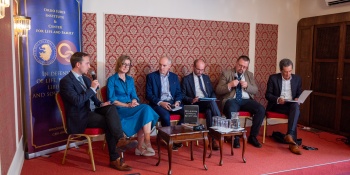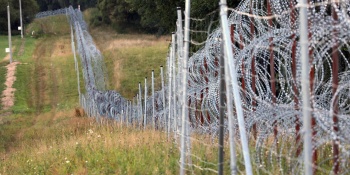Published: 14.12.2020

Sex education classes are now under discussion in Poland. The experiences of other countries that have implemented such programmes are of significant importance in this respect. Such countries as Sweden, Germany and Denmark, instituting a permissive model of comprehensive sex education, have observed high rates of abortion among teenagers, sexually transmitted diseases and sex offences. The Ordo Iuris Institute has prepared a report presenting the scope and popularity of various types of sex education, methods used in other countries to promote comprehensive sex education, as well as numerous statistics regarding the effectiveness of general implementation of such classes in various parts of Europe.
Sex education models currently functioning in the majority of European countries vary widely in terms of the content. On the one hand, there are programmes aimed at bringing up children and young people who stand on the threshold of adulthood, which teach them responsibility and respect for human dignity, including the Polish school subject ‘Family Life Education’. On the other hand, many other models present the biological aspects of sexuality in an almost vulgar way, promote the focus on satisfying sexual needs regardless of the feelings, responsibility and parenting aspects of a relationship and, in consequence, promote the objectification of others.
Obligatory sex education is usually justified with its positive influence on sexual health and social awareness. However, contrary to popular belief, the “corrective” effect of comprehensive sex education (type C) is not obvious. Most often, it is in countries with the most permissive models of sex education that the social situation in terms of the number of abortions, the incidence of sexually transmitted diseases (STD) or rates of sexual offences is at an average or worse than in other countries, which undermines the effectiveness of this form of education even in relation to the basic goals it is to fulfil in theory.
The conducted data analysis may raise doubts as to the effectiveness of comprehensive sex education. The assumptions of sex education programmes – i.e. preventing teenage pregnancies, reducing STD morbidity, delaying sex initiation or reducing the number of sexual offences are not realised in the countries that have adopted this model of sex education. Moreover, in a number of these areas, countries with a traditional abstinence-only model of sex education fare much better – they achieve lower values of indicators considered undesirable. One of the significant aspects is the average sexual initiation age, which in Poland – according to the studies referred to in the report – is almost two years higher than in Germany or Sweden. When it comes to sexually transmitted diseases, it would also be difficult to demonstrate a positive cause and effect relationship between universal, vulgarised sex education and the prevalence of these diseases in the population. In 2014, the rate of new hepatitis C infections detected per 100,000 inhabitants amounted to 9.3 in Poland, and to 18.5 in Sweden – that is almost twice as many.
The inefficiency of universal sex education is particularly obvious in the context of sex offences. In 2017, the rate of such crimes, including rape, per 100,000 inhabitants was approximately 8 in Poland, 42 in Germany, 83 in Denmark, and 189 in Sweden. It is noteworthy that the content of comprehensive sex education programmes, which penetrates the still immature mind of a young person or even a child, acts as a promotion of contraceptives, abortion, frequent changes of sexual partners, early sexual initiation and sexual deviations.
“Although many may find it astonishing, Polish schools have been teaching sex education for years – it is called Family Life Education. The content presented in these classes, concerning the physiological aspects of human sexuality, is no less comprehensive than that contained in the currently proposed controversial programmes, such as, for example, the standards of sex education of the World Health Organization. Polish classes are also based on the relational nature of human sexuality, educating children and adolescents to love and responsibility. Comprehensive sex education promotes a different, extremely permissive vision of this sphere of human life. Therefore, one should not give up the good model for the sake of the worse one, especially when the latter is based on a vision of man and family alien to our culture,” says Filip Furman, PhD, Director of the Centre for Social Sciences and Bioethics of the Ordo Iuris Institute.

• An international conference titled “Reclaiming Classical Education” took place at the Stańczyk Club in Warsaw. It was organized by the Ordo Iuris Educational Center, together with Hungary’s Mathias Corvinus Collegium (MCC).

• The pressure on the European Union’s southern borders has continued unabated since the great migration crisis of 2015.

19.05.2025
• The 78th World Health Assembly, the deliberative body of the World Health Organization, begins today in Geneva.

12.05.2025
In a significant development for Poland’s conservative movement, the newly established Stańczyk Club in Warsaw hosted its first Coalition Meeting last Friday. This event marks the introduction of a model of center-right collaboration that has been influential in the United States since the early 1990s.